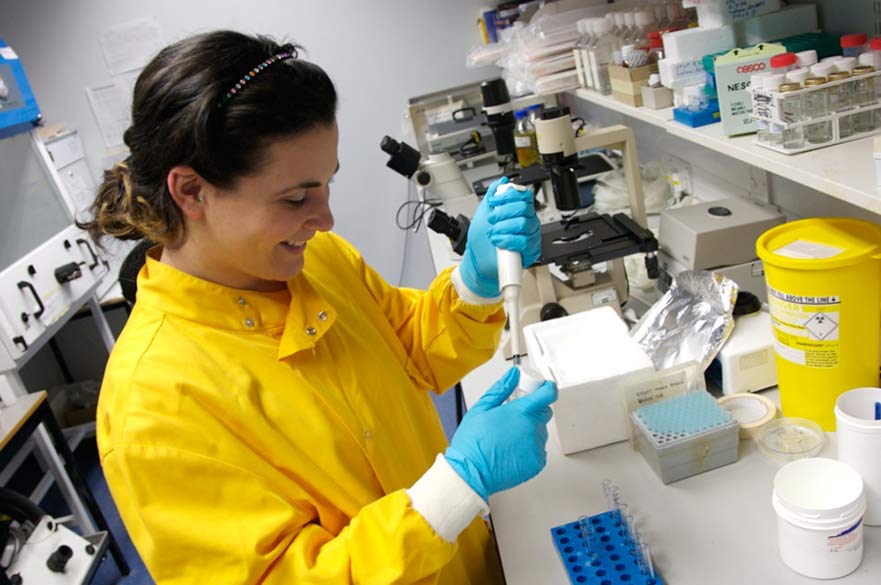Overview
Actin is a cytoskeletal protein that plays essential roles in many cellular processes, such as adhesion, intracellular trafficking, membrane dynamics and motility. Monomeric actin (globular, G-actin) polymerises into filaments (F-actin) to provide actin with its unique roles in many dynamic cellular processes. While traditionally considered a cytoplasmic protein, it is now clear that actin is also found in the nucleus where it participates in many essential processes such as DNA replication and repair, chromatin remodelling and transcriptional regulation. The polymerisation state of actin is controlled by actin-binding and nucleation promoting proteins and, in the cytoplasm, controlled actin polymerisation lays the foundation for its roles in regulating vital cellular processes such as motility, intracellular trafficking and adhesion. While transient nuclear actin filaments have also been described in a variety of processes, such as during the cell cycle and DNA damage/stress response, we have limited knowledge of the key regulators involved.
This research programme will build on our current evidence on the role of nuclear actin in the DNA damage response and identify key mechanisms involved and how this links to cell cycle regulation and cell survival. This research is expected to uncover novel pathways linking cell proliferation and cell cycle regulation during the DNA damage response and reveal new components involved in nuclear activities. Understanding how actin and actin-nucleation impacts processes such as the regulation of gene expression and DNA repair and how stressors such as DNA damage influence this is essential to our understanding of fundamental aspects of cell and molecular biology and the relation to human diseases such as cancer.
This project will build on current research in Dr Amanda Coutts’ laboratory and will be supported by Dr Cristina Montiel-Duarte, both part of the Cancer biology, immunology and therapeutics team within the Centre for Health, Ageing and Understanding Disease (CHAUD) which encourages multidisciplinary research and has a diverse and supportive postgraduate community.
Entry requirements
Applicants should hold, or be expected to hold, an UK Master’s degree (or UK equivalent according to NARIC) with a minimum of a commendation, and/or a UK 1stClass / 2.1 Bachelor’s Honour’s Degree (or UK equivalent according to NARIC) in Cell Biology, Biochemistry, Molecular Biology, or a related Biosciences related subject.
How to apply
There is no application deadline for this project. For a step-by-step guide and to make an application, please visit our how to apply page.
Fees and Funding
This is a self funded project. Please see our funding page on ways to fund your project.
Guidance and Support
Further guidance and support on how to apply can be found on our apply page.
Staff profiles
Entry qualifications
Applicants should hold, or be expected to hold, an UK Master’s degree (or UK equivalent according to NARIC) with a minimum of a commendation, and/or a UK 1stClass / 2.1 Bachelor’s Honour’s Degree (or UK equivalent according to NARIC) in Cell Biology, Biochemistry, Molecular Biology, or a related Biosciences related subject.
How to apply
For a step-by-step guide and to make an application, please visit our how to apply page.
Guidance and support
Further guidance and support on how to apply can be found on our apply page.
